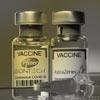Indian pharma firms poised to gain market share amid rising US tariffs: Report

News Synopsis
Indian pharmaceutical companies are expected to gain a competitive edge as a result of potential tariff impositions by the United States. According to a recent report by JPMorgan, these firms may witness an increase in market share due to their cost-effective production capabilities compared to global counterparts.
Competitive Advantage of Indian Pharma Companies
JPMorgan analysts have highlighted that Indian pharmaceutical manufacturers possess superior cost efficiencies, allowing them to absorb tariffs better than many of their international competitors. This advantage positions them favorably in the global pharmaceutical market, particularly in the US.
Unlikelihood of Pharmaceutical Manufacturing Shifting to the US
Despite the proposed tariffs, JPMorgan noted that shifting pharmaceutical manufacturing to the US remains improbable. High production costs and regulatory complexities discourage such a transition. The brokerage firm asserted that even with the introduction of tariffs, manufacturing infrastructure and cost structures in the US would not support large-scale production shifts.
Tariff Impact on Drug Prices and Consumers
The report indicated that a tariff of 25% or higher on pharmaceuticals is unlikely, as it could result in a steep increase in consumer costs and a shortage of alternative suppliers. In the case of a 10% tariff, the cost burden is expected to be partially passed on to customers. Given the consistent demand for essential drugs, pharmaceutical manufacturers and Pharmacy Benefit Managers (PBMs) are likely to absorb the remaining cost.
Pricing Contracts and Cost Pass-Through Mechanism
Pharmaceutical pricing contracts are usually determined based on the landed cost of drugs. This structure supports a higher pass-through of costs to consumers in the event of tariff imposition. Consequently, an increase in drug prices could result in higher insurance premiums for patients in the US over the medium term.
Market Consolidation and Indian Pharma Firms' Response
If tariffs persist over time, major Indian pharmaceutical companies might consider consolidation to strengthen their negotiating power. However, the report suggests that these companies are unlikely to exit the US market due to its significance in their global revenue streams.
Biosimilars Expected to Be Exempt from Tariffs
JPMorgan anticipates that biosimilars will likely be excluded from any tariff imposition. The US heavily relies on biosimilar imports, with nearly 70% of these products being sourced from international manufacturers. Imposing tariffs on biosimilars would lead to a sharp increase in patient costs, making exemptions more feasible.
Tariffs on Active Pharmaceutical Ingredients (APIs) and CDMOs
Regarding Contract Development and Manufacturing Organizations (CDMOs), JPMorgan stated that tariffs on Active Pharmaceutical Ingredients (APIs) or intermediates are unlikely. If tariffs were imposed on CDMOs, manufacturing costs for formulations within the US would rise. However, CDMOs are expected to transfer these costs to their clients, mitigating financial impact on their operations.
Challenges in Domestic Manufacturing Expansion
The US government's push to reduce import reliance, particularly for essential drugs, is hindered by several factors. Manufacturing costs for small-molecule drugs in the US are estimated to be around 75% higher compared to production in India or China. Additionally, stringent environmental regulations and globally dispersed pharmaceutical supply chains make domestic expansion challenging. Establishing new API or formulation plants in the US would require significant investment and time.
Impact on Other Global Pharma Manufacturers
Apart from India, pharmaceutical firms in Israel and Switzerland, particularly Teva and Sandoz, may face similar tariff challenges. These companies operate with lower profit margins compared to Indian firms and could be more adversely impacted by US-imposed tariffs.
Conclusion
Potential US tariffs on pharmaceutical imports could serve as a growth catalyst for Indian pharma companies, reinforcing their competitive advantage in the global market. Despite concerns over rising drug prices, experts believe that Indian firms will continue to thrive due to their cost-effective manufacturing processes. With biosimilars expected to remain exempt from tariffs and API manufacturing largely unaffected, India’s pharmaceutical industry is poised to navigate these changes effectively.
You May Like









